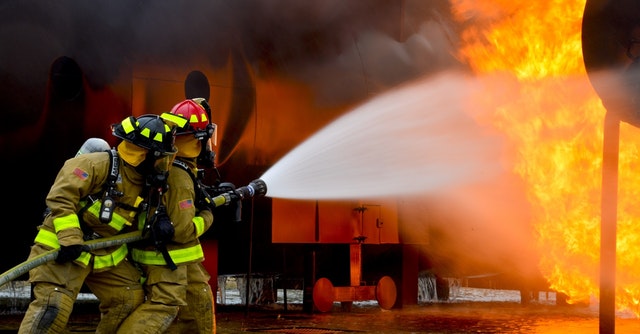House fires are frightening for anybody who experiences them. Fortunately, smoke alarms are literal lifesavers; they have led to a 50 percent decrease in fire-related fatalities over the past 30 years. But many people with hearing loss in San Diego are unable to hear the audible, high-pitched alarm – putting them at risk of being unable to wake up in time to save themselves from a fire.
It’s a High-Frequency Problem

The majority of hearing-impaired individuals in San Diego experience high-frequency loss first. This makes it difficult to hearing high-pitched sounds, such as those delivered by conventional smoke detectors. While exact data on the number of fire victims who perished as a result of an inability to hear is sketchy – few fire investigations delve into examining this type of information – a nonprofit organization called the Fire Protection Research Foundation (FPRF) conducted a study in 2007 devoted to examining the correlation and found some surprising results.
The findings, published in a paper titled Waking Effectiveness of Alarms for Adults Who Are Hard of Hearing, showed that 43 percent of research subjects did not awaken to the high-pitched signals generated by smoke detectors, which emit sounds in the 3,150-Hz range. Low-pitched smoke detectors that deliver sounds in the 520-Hz range, however, were able to wake up 90 percent of participants at the minimally-acceptable fire code sound level of 75 decibels. At 95 decibels, every single subject was awakened.
Terry Portis, Executive Director of the Hearing Loss Association of America, is convinced the FPRF study demonstrates the need for a significant overhaul in the nation’s emergency systems in order to prevent fire-related injuries and deaths. He is a proponent of low-frequency smoke detectors, but unfortunately these are not yet widely available to the general public. Unless and until they are, people with hearing loss are less likely to escape a fire unharmed.
If you have hearing loss in San Diego, there are steps you can take to improve your personal safety. The Americans with Disabilities Act (ADA) requires that all public facilities with sleeping accommodations provide hearing-impaired guests with access to their buildings’ alarm systems, and many offer alternative warning devices, such as alarms that flash or vibrate. When booking lodging, ask what options are available to you.
For more information on preventing accidents and injuries and keeping yourself safe while living with hearing loss, contact your San Diego audiologist today.